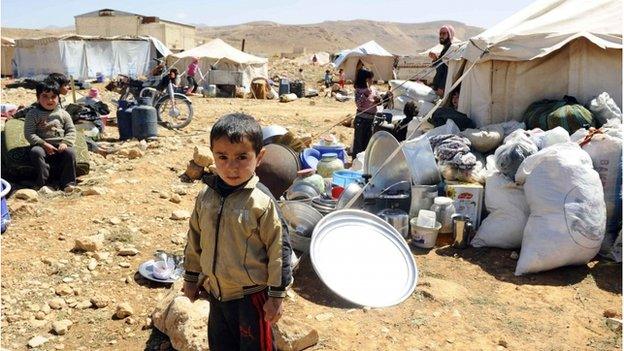School places and homes 'risk to Syrian refugee resettlement'
- Published
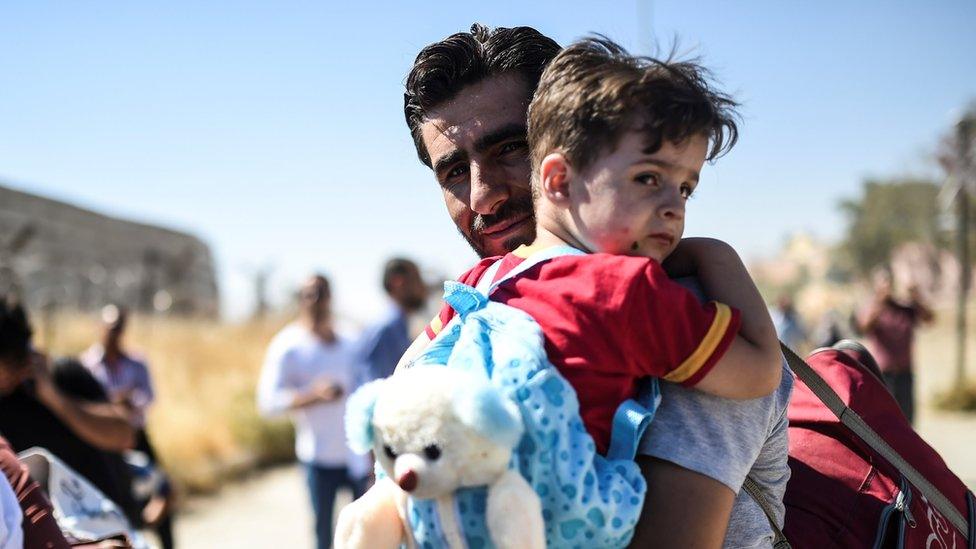
The government's Syrian vulnerable persons resettlement programme could be "at risk" because of a lack of school places and accommodation, a National Audit Office report, external has warned.
The watchdog said these were some of the "main barriers" to local authority participation in the scheme.
It estimates a need for 10,664 school places and 4,930 homes for the 20,000 refugees due to be taken in by 2020.
The government said it remained on track with its programme.
The NAO's report highlighted the government's success in having "expanded the original programme at speed to achieve a new target" of resettling 1,000 refugees by last Christmas, and progress in improving refugees' own experiences of the programme.
However, it said there could be significant problems in meeting the target of resettling 20,000 refugees if pledges of help from local authorities did not become firm offers.
Participation by local authorities is voluntary, and they can make what is known as an "indicative pledge" to resettle refugees before upgrading this to a "firm offer" once accommodation, support and other services have been secured.
Although there has been a 97% success rate for allocating refugees to firm offers, by the end of June 2016 there were only 125 firm offers to cover 1,078 cases of refugees accepted for resettlement.
According to the NAO, local authorities say the main thing preventing them from participating fully is that they are struggling to find suitable housing and enough school places.

Other problems highlighted in the NAO report:
Local authorities have not always understood central government's expectations of them after the first year of the programme
Although refugees have a largely positive experience of the programme, uncertainty about their status in the UK has caused anxiety
The programme provides funding to local authorities beyond the refugees' first year but it is not clear whether this will cover all future costs, particularly if the refugee has special educational, medical or mental health needs
There is no estimate of the total cost of the programme to the UK

Over-subscribed schools
The report says that just under a third (31%) of refugees settled so far are of school age.
Of those refugees still to come to the UK through the programme, an estimated 7,655 will be of school age and a further 3,009 will become old enough to enter the education system during the programme.
But the NAO said school places were already "in short supply" and cited its 2013 report on funding for new school places, which revealed that about one in five primary schools were full or over capacity.
The NAO also estimates that about 20% of children in the resettlement programme are expected to have special educational needs.
This means local authorities will probably have to provide more than 1,500 special educational needs places, the NAO said - and some local authorities have already "turned away cases because they were unable to provide the required places".
Not enough homes
The programme so far has required 655 homes and is estimated to need a further 4,930 before 2020, based on the size of families resettled so far.
Some councils had been successful in partnering with the private rental sector to house refugees, the report said, but others were "struggling to do so".
Local authorities in areas where accommodation costs are high also have concerns about finding affordable accommodation for refugees given the current housing benefit cap.
This has meant only 11% of refugees have been settled in areas such as London and the South East.

NAO recommendations
Make it clear there are no set requirements for what local authorities need to provide during refugees' second to fifth years
Clarify what refugees are entitled to in respect of travelling within and outside the UK, family reunion and their status after the programme
Ensure other government departments have plans in place to manage risks, for example finding suitable housing and school places
Collect more information to adapt budgets if there are changes to costs so no organisation taking part struggles to participate
Make sure refugees' opinions are listened to and factored into new developments
Ensure a full monitoring and evaluation framework is operational as soon as possible

Meg Hillier MP, chair of the Public Accounts Committee, said: "Local authorities should be applauded for stepping up to help these people in desperate need.
"But already under pressure local authorities will have to find over 10,600 childcare and school places, and nearly 5,000 homes over the course of the programme as well as social and community support services.
"We need to be convinced that the government is committed to supporting local authorities in their efforts and is clear about its expectations and funding beyond the first year of a refugee's stay in the UK."
Refugee Council head of advocacy Lisa Doyle said it was "fantastic" that UK communities were welcoming refugees.
She said: "Each Syrian refugee welcomed by the UK will have their life transformed, if not saved by this programme.
"The UK government must build on this success by offering more refugees safe passage here, particularly by enabling more refugees with family here to join them smoothly and swiftly."
Refugee Action chief executive Stephen Hale said: "We are pleased that the programme has been established but I think there is a lot to do to help refugees integrate into Britain."
He said the government's funding of English language classes was "crucial" in helping refugees integrate.
A government spokesman said: "We ask local authorities to consider carefully whether they have the necessary infrastructure and support networks before a resettlement occurs.
"We will only resettle individuals to a particular area once we've ensured these arrangements, including school places and housing, are in place."
He added: "The level of funding enables local authorities to provide vulnerable refugees with a safe environment and the chance to rebuild their lives."
- Published12 September 2016
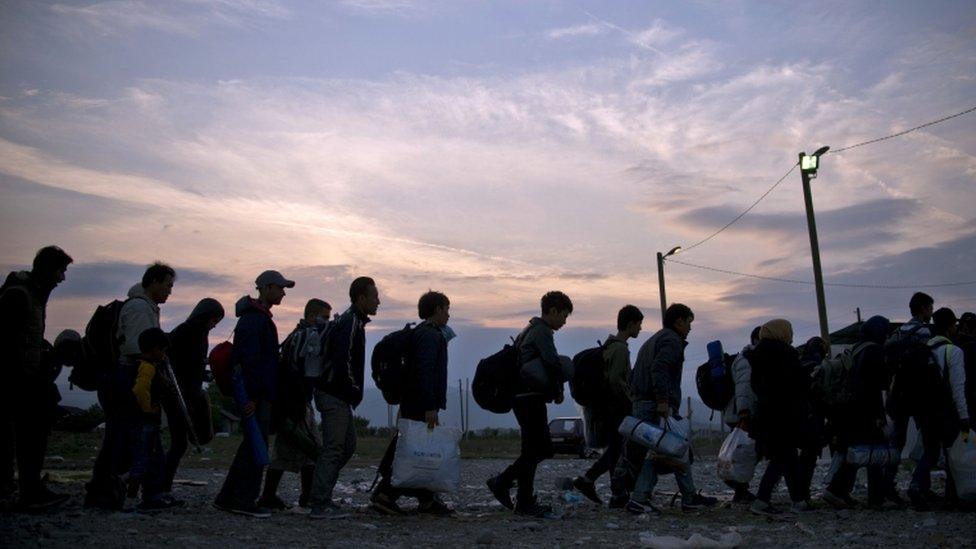
- Published4 September 2016
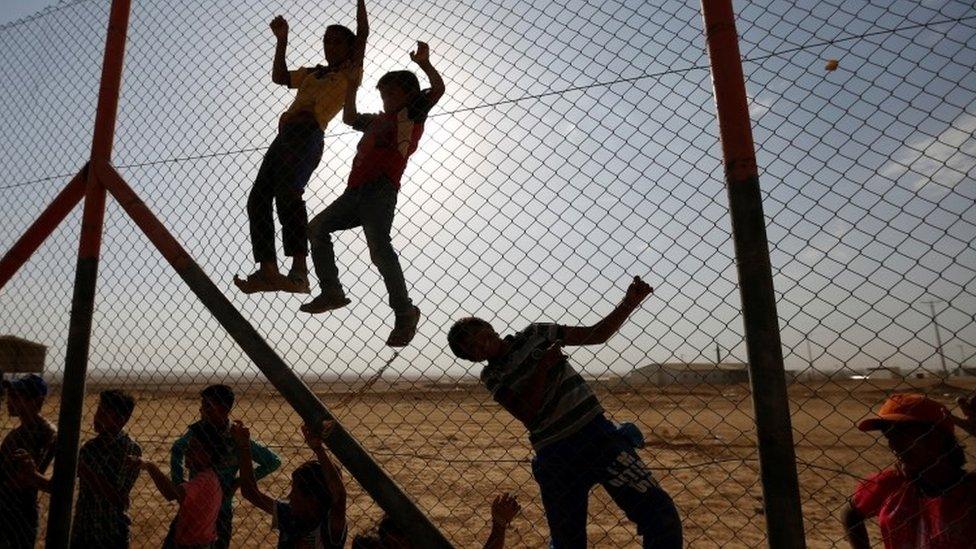
- Published13 April 2016
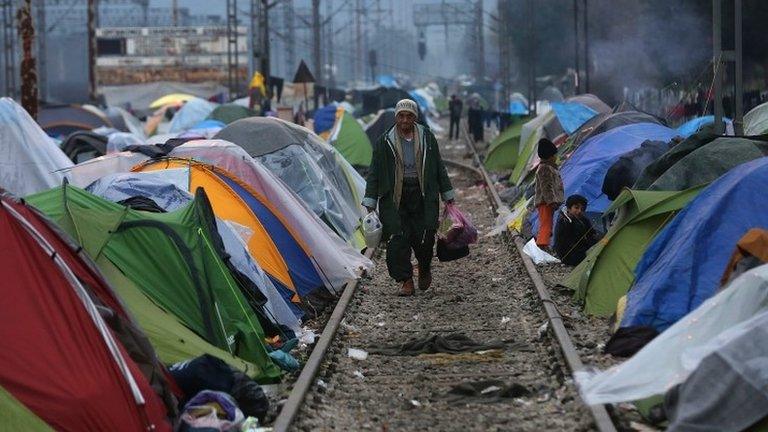
- Published25 March 2014
